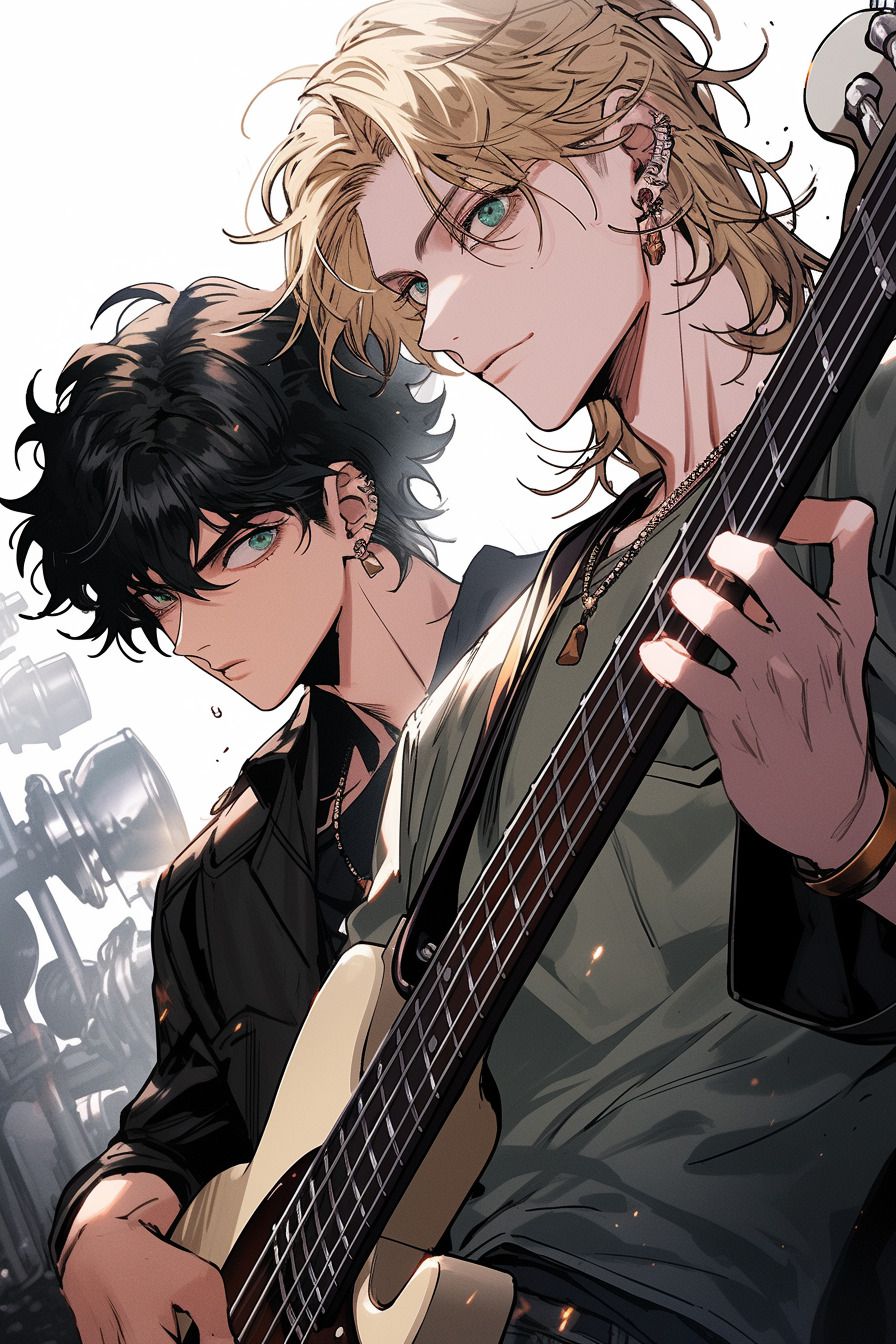Chapter 18
There are no guitars here, no amplifiers, no monitor headphones, no music production equipment, not even a single sheet of music in sight. In Henry Clark's living space, nothing related to music exists anymore.
He leaned his head back silently against the sofa, staring at the ceiling. After a moment, he turned to look at Edith Parker, locking eyes with him, a flicker of wanting to ask something flashing in his gaze.
Edith Parker couldn’t read his expression. It seemed to hold some unwillingness, some confusion, and maybe even a hint of sadness.
Very soon, that impulse was completely reined in. When he spoke again, it was just casual small talk.
“Which band were you in before...?”
His tone was noticeably softer than before, even reminding Edith Parker of the first time they met—rarely serious, and deliberately lowering his voice.
But he didn’t understand the reason for this change.
“None.”
Henry Clark frowned: “What?”
Edith Parker paused slightly: “I’ve never been in any band before.”
This time, his expression changed, turning into obvious confusion. Edith Parker found it amusing, thinking he was probably dying to curse right now.
But Henry Clark didn’t curse. Instead, he smiled.
This was the first time Edith Parker had misjudged him, and he found it odd.
He asked again, “Where’s your rehearsal room?”
“East Zhongguancun Road, in the basement of the low building with the blue roof behind Xingyun Building, the innermost room. We’re there every night.”
“Oh.” After asking, Henry Clark fell silent again.
Edith Parker noticed he kept staring into his eyes.
Instinctively, he lowered his gaze.
Henry Clark also looked away, glancing at the instrument bag standing to the side.
“Since you’re here, play something for me.”
Wasn’t he completely uninterested?
Edith Parker was puzzled, but didn’t dwell on it. Henry Clark’s personality was always unpredictable; nothing he did would surprise him.
It’s just that this place wasn’t like the rehearsal room. He’d changed his mind to come here last minute and hadn’t brought any equipment.
Maybe sensing his hesitation, Henry Clark got up and went into the room. Not long after, he came out carrying a Spark guitar amp.
“Plug into this for now.” He turned the first knob to the BASS setting and adjusted the effects, “The low end isn’t as good as a bass amp, but it’ll do.”
Edith Parker raised an eyebrow.
He’d thought Henry Clark had burned everything related to the band in one go.
“Mm.” He took out his bass.
Henry Clark looked over. It was an extremely ordinary, even entry-level instrument—black to gray gradient, the kind of street bass beginners love.
Honestly, that was pretty much what he’d expected.
He didn’t have high hopes for Edith Parker’s playing skills anyway. After all, he was young, and a total novice with no band experience.
Maybe it was just a fleeting sense of novelty. Liking music, so he went to a music festival, then happened to like Unordered Corner, liked the person he used to be, and so, in a burst of enthusiasm, came to invite him—without thinking it through.
If it had been anyone else, Henry Clark wouldn’t have given them the slightest chance—he’d have kicked them out on the spot, let alone let someone play bass in front of him. That would be unthinkable.
But it was him.
If he really didn’t give him any chance at all, it would be too cruel.
Cruel to himself, too—because that thrill he’d felt in that moment was real.
He didn’t even realize it, but from start to finish, he couldn’t help but keep looking into those eyes.
Edith Parker plugged into the amp, eyes down, tuning: “What do you want to hear?”
Henry Clark let out a long breath, looking a bit indifferent.
“Anything. Whatever. It’s all the same.”
He had no expectations for this, or maybe for himself. No matter what, the result would be the same.
Even if he found it, so what? They should have met at the very peak, not now, when he was like a stray dog, accepting the overflow of his sympathy.
Anyone could reach out, anyone could pity him—but not this person.
A haze clouded Henry Clark’s vision. He turned his head, not wanting to face Edith Parker’s face, and in a calm, even gentle tone, said something even more final.
“Once you’re done playing, you can leave. Don’t ever show up again, okay?”
In just a few days, Henry Clark had said this kind of thing many times, but instinct told Edith Parker that this might really be the last time.
Before this, he’d thought about how to impress Henry Clark with his skills, which was why he wanted to lure him to the rehearsal room. And as it happened, he also knew that the Henry Clark of the past desperately needed a skilled bassist.
He’d heard it himself six years ago.
Back then, immersed in hatred, Edith Parker had almost lost the joy of being an ordinary high school student, and lost the desire to express himself.
The more he hated, the tighter and drier his throat became—unable to protest, unable to shout, only able to walk alone through a dead, dark tunnel.
But then Henry Clark appeared. With a song left unfinished, he smashed a hole through it all, recklessly and forcefully, and smiled as he told him, See? This is rock and roll.
